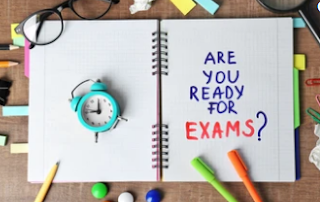Basic English Grammar Lessons


Spot the Error:
1. The boy could hear other rumours laughing and talking in the large
h
A B C D
2. He thinks that twenty miles are a long distance
in those days.
A B
C D
3. “The town’s vacant, but we found the native
life in the hills, sir.”
A B C D
4. I have many news to tell you. Will you hear?
A B C D
5. Ali went to London for two months’ vacations with
his family.
A B
C D
Types of Nouns
Common
Noun
Person, places & name of things for example boy, city
Proper
Noun
Ali, Sialkot, Pakistan
Countable
Noun
for example boys, cities, books
Uncountable
Noun for example tea, milk, water, etc.
Collective
Noun for example class, team, family
Abstract
Noun for example pain, happiness, anger
Concrete
Noun for example house, table, pen
Material
Noun made up of matter for example iron, silver, copper
Compound
Noun for example tea-spoon, cupboard, toothpaste etc.
Neutral Noun for a doctor, a teacher, a baby etc.
Most Important Rules
Rule# 1
If Collective Noun refers to the multitude or one idea, Singular
Verb is used:
The
committee has to resolve the issue.
The
police is investigating
the case. (department)
The
Jury has given
its decision.
The
whole team is working hard.
The
crew is on board.
Ten
miles is a long
distance.
Ten
thousand rupees is a big amount.
Rule#2
Some Nouns, which are Plural in form, take Singular
Verb:
The
News is true.
Politics is/are, Mechanics is, wages of sins is. Mathematics is/are
Rule#3
Nouns having same form in Singular as well as in
Plural, verb is used accordingly:
Two
dozen eggs cost hundred rupees. Cattle are, Two
pieces of news are, two deer,
The
committee were divided
on this issue.
Ten
heads of cattle are mine.
(cattle,
clergy, bulk, police, public, people, mass, mankind, peasantry, gentry,
majority take singular form)
Rule#4
Verb is used with Affirmative Subject not with Negative Subject: He not you is guilty. You not he are guilty.
Rule#5
Some
Singular and Plural forms of Nouns
are
different in Meanings:
Singular
Form Plural
Forms
Advice
means counsel Advices
means information
Abuse
means criticism Abuses
means wrong use
Alphabet
means
ABC Alphabets means
all alphabets of other languages.
Good
means benefit Goods
means moveable property
Iron
means metal Irons
means chains made of iron
Iron
is a machine to press clothes
Return
means go back Returns
means statistics
Colour
means
paint Colours means banners
Force
means energy Forces
means army
furniture,
offspring, dirt, poetry, poultry, scenery, folk, mischief, machinery, infantry,
stationery, cavalry (AID) , pedantry (Application of knowledge) ,
perfumery, behaviour, information
Rule#6
Plural Noun with ‘s’ & Singular
Noun with ‘s’
Plural
with ‘s’ Singular
with ‘s’
A
Summons is received. The first innings
is over.
Summonses
are issued.
Alms
are distributed. The News is
true.
Riches
do not last forever. The
means is sufficient.
These
scissors are sharp. The wages of sin is hell.
Rule#7
Wages
& Wage (money / salary)
Wages
are paid by cash. Wage is paid by cash.
Pants,
trousers, shears, scissors, tweezers, shoes, socks, shoes, gloves, pyjamas,
glasses, knickers , tights, pincers/tongs, binoculars , scales, grippers,
forceps/tongs
can
be used as I have bought a
pair of trousers. I have bought a pair of socks. I have bought a pair of glasses. etc.
Rule#8
Means, pains, amends, odds, grounds, are used as Plural:
Examples:
All possible means have been tried out. Great pains
were taken. I accept their amends. The odds were
against him. On these grounds he was released.
Rule#9
Singular [~sis] & Plural
Spellings [~ses]
Singular Form Plural Forms
Analysis Analyses
Crisis Crises
Synthesis Syntheses
Emphasis Emphases
Antithesis Antitheses
Thesis Theses
Hypothesis Hypotheses
Singular [~us] & Plural Spellings [~i]
Stimulus stimuli
Syllabus syllabi
Singular
& Plural
with no ‘s’
Criterion criteria
Phenomenon Phenomena
Memorandum Memoranda
Medium Media
Use
of article to make plural of some Adjectives
a poor man the poor
a rich
man the rich
a
handicapped the
handicapped
a blind
man the blind
Rule#10
Some
Nouns have no Singular forms and take
a Plural Verb; such as:
Scissors,
bellows, fetters,
arms,
breeches,
drawers, shorts, trousers,
Socks,
stockings, spectacles, measles,
Mumps,
smallpox bowels, entrails,
Intestines
Ashes, assets, drugs,
Embers/residues,
goods, statistics,
proceeds,
auspices, billiards, news,
contents, Furs tidings, surds, Credentials (IDs) Wages, thanks, oats, abuses,
advices, surrounds, riches, lodgings Fives (a handball game)
Rule#11
Countable
& Uncountable Nouns
Countable
Nouns are names of objects, people, ideas etc. which
can be counted, such as a cat, cats, a ball , balls (They are used with the
article a/an)
Uncountable
Nouns are names of material, liquids, abstract
qualities etc. (They are normally used with a/an) However, there are some
exceptions, especially nouns referring to human emotions and mental activity,
such as
You’ve been a great help. I need
a good sleep. I need a secretary of first-class knowledge.
How
to use Uncountable with Countable Nouns
Uncountable Countable
accommodation a place to live
baggage a piece/item of baggage, a
case/trunk/bag etc.
bread a piece/loaf of bread
chess a game of chess
chewing gum a
piece of chewing gum
equipment a
piece of equipment, a tool etc.
furniture a piece/article of furniture.,
a table, a chair etc.
information a piece of information
knowledge a fact
lightning a flash of lightning
luck a bit/stoke/piece of
luck
luggage a piece/item of luggage, a
case/trunk/bag etc.
money a note; a coin; a sum
news a piece of news
poetry a poem
progress a step forward; an advance
publicity an advertisement
research a piece of research; an
experiment
rubbish a piece of rubbish
slang a slang word/expression
thunder a clap of thunder
traffic a car, a bus, a lorry
vocabulary a word/expression
work a job; a piece of work
Comments
Post a Comment